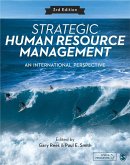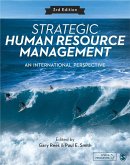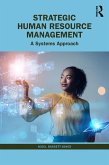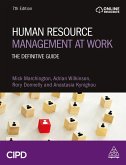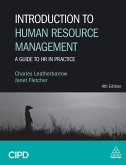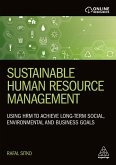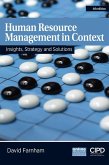Armstrong's Handbook of Strategic Human Resource Management is a complete guide to integrating HR strategies with wider organizational goals and objectives approaches to achieve sustained competitive advantage.
Supported by key learning summaries, source reviews and practical real-life examples from organizations including UNICEF and General Motors (GM), this book provides coverage of HRM strategies in key areas of the function such as employee engagement, talent management and learning and development, as well as strategic HRM approaches in an international context.
This fully revised seventh edition of Armstrong's Handbook of Strategic Human Resource Management contains new chapters on evidence-based strategic HRM, employee wellbeing strategies and HR analytics, as well as additional case studies and updated wider content to reflect the latest research and thinking. It remains an indispensable resource for both professionals and those studying HR qualifications, including undergraduate and masters degrees and the CIPD's advanced level qualifications. Online supporting resources include lecture slides and comprehensive handbooks for lecturers and students which include self-assessment questions, case study exercises, and a glossary and literature review.
Supported by key learning summaries, source reviews and practical real-life examples from organizations including UNICEF and General Motors (GM), this book provides coverage of HRM strategies in key areas of the function such as employee engagement, talent management and learning and development, as well as strategic HRM approaches in an international context.
This fully revised seventh edition of Armstrong's Handbook of Strategic Human Resource Management contains new chapters on evidence-based strategic HRM, employee wellbeing strategies and HR analytics, as well as additional case studies and updated wider content to reflect the latest research and thinking. It remains an indispensable resource for both professionals and those studying HR qualifications, including undergraduate and masters degrees and the CIPD's advanced level qualifications. Online supporting resources include lecture slides and comprehensive handbooks for lecturers and students which include self-assessment questions, case study exercises, and a glossary and literature review.



